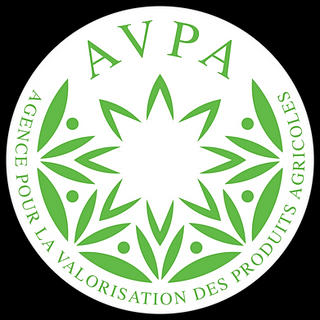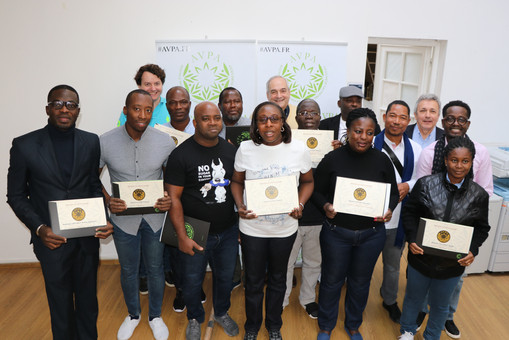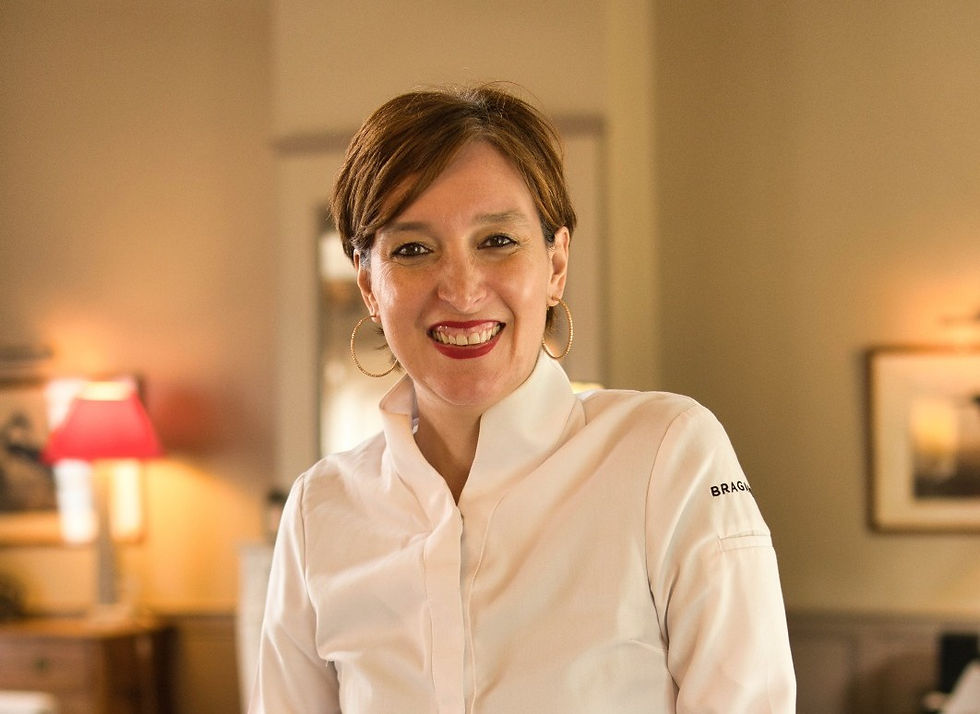AVPA and local roasted industries development
- Philippe Juglar
- Apr 15, 2023
- 4 min read
Question:
Philippe Juglar, you are the President of AVPA (the Agency for the Valorization of Agricultural Products), an international NGO based in Paris regrouping more than 1000 members (mainly growers) from all over the world. Your main tool is to organize competitions of exceptional products. What for?
Our experience in Europe showed us that there are three major factors of quality improvement:
1. High quality food agricultural products are prepared and elaborated by the growers themselves, or at least, by local manufacturers working in close collaboration with the growers. Look at wine, tea, olive oil….
2. Historically, these producers used to organize competitions which helped them compare and improve their own quality in reference to local competitors. Thus, they were defining globally accepted quality standards which became, later on, Geographic Indication specifications.
3. Unfortunately, these valorous producers, when they are not organized in collective marketing and commercial organizations, have no means to be heard and recognized in markets where massive marketing and hyper-concentrated distribution are the rule.
Organizing international competitions is still the best way to find out about the most interesting producers and to get a local, national and international recognition for the happy few who will be awarded an AVPA trophy.
Question:
And how did AVPA come up with the idea of developing a competition of coffees roasted at origin, where they have been cropped? You would have met more success by inviting all the roasters in the world!
As I said, to be efficient, the search of quality must start at the grower level or very nearby the very coffee grower. Over the last ten or fifteen years, we have seen a quite impressive evolution in the coffee producing countries. First, they turned into consuming countries. The first producer of the world, Brazil, is now its first client! As a result, a local roasting industry has surged. To compete with well-established international brands, the cleverest local roasters moved to higher quality. At the same time, largest coffee growers, private landowners or cooperatives, mainly to find economic alternatives to unbearable international prices, developed their own roasting companies to access the local market. They proved that quality coffee has local opportunities. Conclusion: a new market segment has surged, locally roasted quality coffees.
For the AVPA board, it was obvious we had to help this drastic evolution towards a better recognition of coffee roasted at origin:
- Local recognition when national coffee organizations are much more devoted to green than to roasted coffee and when the local consumers are subject to intensive advertising campaigns from international brands.
- International recognition when distributors and consumers in consuming countries are completely ignorant of the possibility to import the best coffees of the world elaborated and sold in the best conditions by the growers themselves!
Question:
On the consumer side, how do you see the possibility of exporting locally roasted coffee?
One must be conscious we are just at the footstep of a new era. It will take time to educate and convince consumers and distributors in Europe or in the US that they should buy their coffee roasted at origin. Three arguments will help us:
- Economic opportunities. Buying from plants based in less develop countries could be a good opportunity. This is the case for main soluble coffee manufacturers based in India, Thailand, Colombia, Ecuador, Brazil, etc… Some regular coffee roasters based in Colombia or in India are also exporting low cost coffees to Europe or US. Unfortunately, it is a capital-intensive industry with narrow margins.
- Quality opportunities for the best coffees which get the legitimacy and authenticity of locally processed products, which could be protected by Geographical Indication Certifications when local authorities will finally understand it is no use to certify green coffee while it is urgent to guarantee the origin of consumer-ready products.
- “Sustainability” as consumers are deeply concerned with sustainable development, which involves a fairer repartition of the value chain. What better answer than to completely elaborate the product in the producing country?
A very good clue that this era is coming: nowadays you may find in Europe companies devoted to importing coffees roasted at origin!
Question:
Is AVPA developing specific tools to help producers?
Besides our international contest, we developed tools to help local producers enter this new era.
- First, capacity building:
o To help local would-be independent entrepreneurs start a roasting business as we recently did it in cooperation with the Ivory Coast Coffee authorities.
o To train local coffee professional tasters to find out the qualities of their own coffee, with the most open possible mind, based on the French or Italian gastronomic culture.
o To organize seminars for the coffee industry stakeholders as we did in last December in Congo-DRC.
- Second is to organize local competitions as to initiate the virtuous circle of quality at growers’ level. Friendly confrontation of high quality locally roasted coffee opens the possibility to cup, to compare and to build a common experience.
- Third, we try to find new promotional tools in consuming countries. For instance, in June, AVPA organizes a stand at the World of Coffee Berlin fair to show out volunteers awarded coffees from the last 2018 contest. And the 2019 award ceremony will take place at the very famous HOST fair in Milan next October.
- Last, we may act as consultants to find out the ways of organizing coherent geographical Indications as well as their commercialization and promotion.
As a conclusion, how do you see the future development of the coffee industry in producing countries?
Globally speaking, the coffee industry will tend to lower costs and/or to maximize price and quality. In both alternatives, it means technical reinforcement and local integration of the entire chain, including local roasting, marketing and branding.
Local industries have huge opportunities on local, national and sub regional levels where they should focus their effort.
Obviously, some countries can no longer compete in terms of costs. Their only way out is to reinforce their quality and make it recognized with an appropriate branding, probably with the help of Geographical indications as France and Italy did for their wines or olive oils, or India or Japan for their teas. One must not forget that complete elaboration includes branding. The intangible value of the coffee stands in its brand, should it be a collective one as a Geographical Indication.


















Comments